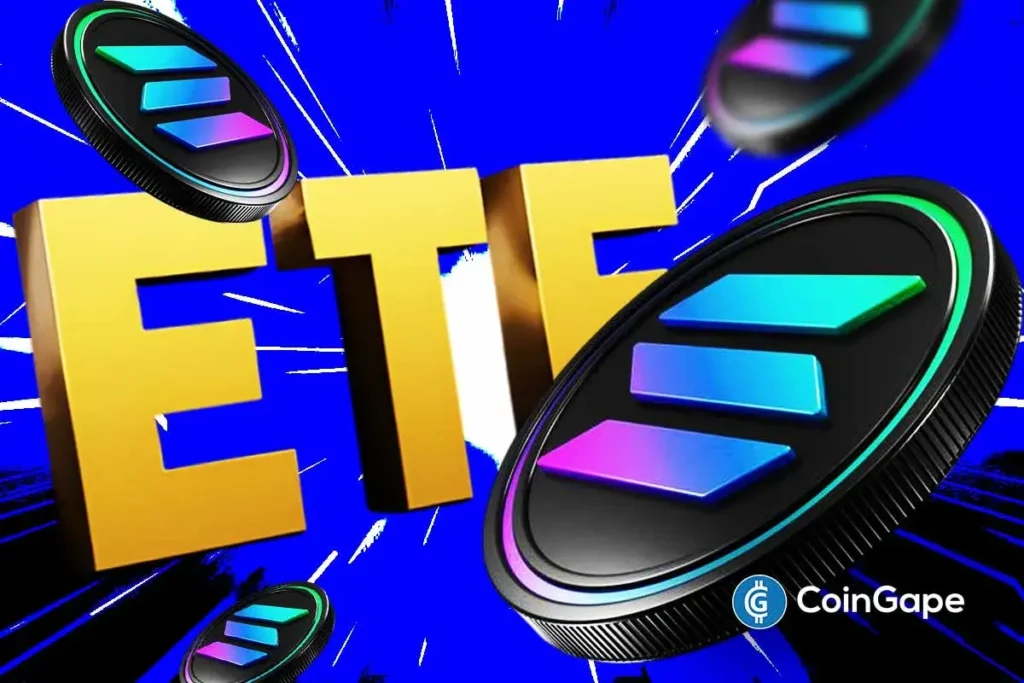Title: The Surge of Solana ETFs: A New Era in Crypto Investment
The financial landscape surrounding cryptocurrencies is rapidly evolving, especially with the surge in interest surrounding Solana Exchange-Traded Funds (ETFs). Major issuers like Grayscale, Fidelity, and Bitwise have recently submitted amendments to their Solana ETF applications, showcasing a strong push for regulatory approval. These updates include staking provisions, which could revolutionize the way investors interact with Solana-based products. As financial analyst Nate Geraci suggests, we could see ETF approvals in as little as two weeks, marking a significant leap in institutional adoption of digital assets.
The recent amendments involve several high-profile companies, including Franklin, CoinShares, VanEck, and Canary. Submissions were made to the U.S. Securities and Exchange Commission (SEC) via updated S-1 filings, capturing the attention of industry analysts. According to Bloomberg’s James Seyffart, these developments suggest an increased responsiveness from both issuers and regulatory bodies towards the Solana ecosystem. The inclusion of staking in these amendments is crucial as it allows investors to earn rewards directly from their Solana holdings on-chain, enhancing the overall utility of these ETFs.
Staking is a feature that enables funds to leverage the core functionality of Solana’s proof-of-stake mechanism, facilitating additional income streams for shareholders. Grayscale, Bitwise, and Canary are particularly focused on putting their trusts into designated staking accounts. This strategic move allows funds to receive rewards, which can either materialize as cash or SOL tokens. By integrating staking into their ETF models, issuers not only enhance the net asset value (NAV) but also offer a dual advantage of price exposure and income potential to investors.
This push to incorporate staking aligns with broader regulatory shifts noticed by market participants. Earlier in September, the SEC approved changes for Grayscale’s Ethereum products, allowing them to transition from non-generic listing rules to a standardized framework. This shift aims to streamline the approval process for similar digital asset products, enabling them to trade without the need for repeated SEC evaluations. The recent filings signal that Solana ETFs could soon follow suit in this evolving regulatory landscape.
Investor demand for Solana products is showing unprecedented growth. Just last week, Bitwise’s European Solana staking Exchange-Traded Product (ETP) attracted $60 million in inflows, a sign of robust market interest. In the U.S., the REX-Osprey SOL + Staking ETF (SSK) has also seen impressive traction, recording $10.6 million in net inflows within a single day and surpassing the $250 million asset under management (AUM) threshold in under two months post-launch. This sharp rise in institutional investments signals a growing appetite for Solana-related financial instruments and highlights the need for sophisticated investment vehicles.
To enhance its competitive edge, REX-Osprey recently restructured its Solana ETF from a C-Corporation into a regulated investment company. This change is significant; it not only aims to optimize the tax efficiency of the product but also signifies a shift toward compliance with regulations that investors can trust. Meanwhile, Grayscale is also diversifying its strategy with the introduction of other cryptocurrency funds, such as the CoinDesk Crypto 5 ETF. This particular ETF, which includes Solana and peers like XRP, showed a promising trading volume of $22 million on its debut day.
With the SEC’s recent regulatory easing, the expectation is that official approvals for Solana ETFs could materialize as soon as the first or second week of October. This anticipated green light would not only validate the efforts of major financial players but could significantly shape the future of cryptocurrency investments. As traditional financial systems and digital technologies converge, Solana ETFs stand at the forefront, ready to cater to institutional demands while providing new opportunities for both seasoned and novice investors alike.
In conclusion, the recent activity surrounding Solana ETFs marks a pivotal moment in the cryptocurrency space. The combination of robust institutional interest, innovative staking mechanisms, and favorable regulatory changes suggests a promising outlook for Solana-based financial products. As we approach potential SEC approvals, investors are poised to benefit from a diversified and dynamic cryptocurrency investing landscape, paving the way for a future where digital assets are an integral part of investment portfolios.


